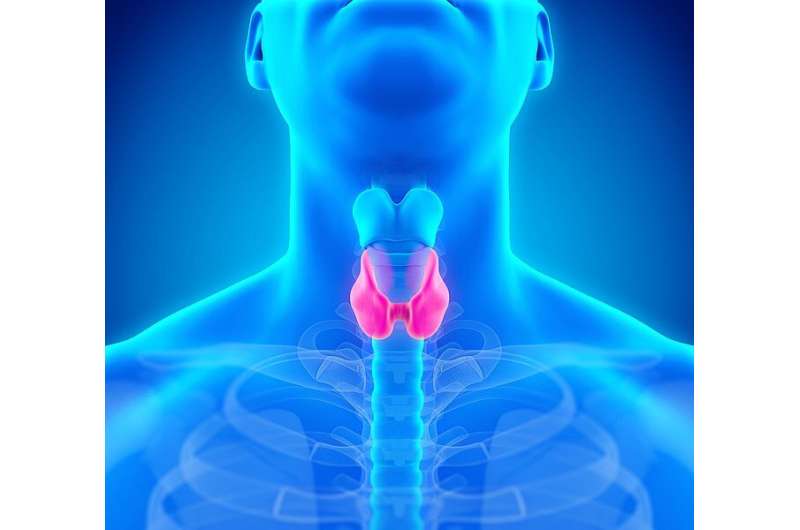Charting a new path for pediatric thyroid cancer treatment

Thyroid cancer is the most common type of endocrine cancer in children. Because it is bilateral—affecting both sides (lobes) of the thyroid—in more than one third of pediatric patients, initial treatment typically involves a total thyroidectomy, the surgical removal of the entire thyroid gland.
However, removal of only the affected lobe—a lobectomy—has come to be recognized as adequate treatment for most low-risk thyroid cancers in adults. This is an advantage because a lobectomy has fewer risks than a total thyroidectomy and usually does not result in a lifelong need for thyroid medication.
Now, findings from a recent study by researchers at Boston Children’s Thyroid Center and Brigham and Women’s Hospital suggest that lobectomy could also be an option for some children and teens with less aggressive thyroid cancer.
Rethinking thyroidectomy
The research team reviewed the medical records of 115 children and adolescents who underwent a total thyroidectomy at Boston Children’s or Brigham and Women’s between 1998 and 2020. Ninety percent had papillary carcinoma, the most common type of thyroid cancer. After analyzing the data, the team found that only multifocality—having more than one tumor—in the primary cancerous lobe was independently associated with bilateral disease. This is consistent with the intuitive idea that tumors that have spread through one lobe of the thyroid are more likely to have spread also to the other lobe, says the Thyroid Center’s medical director Ari Wassner, MD, who led the study.
The study also arrived at another key finding. Children who had papillary carcinoma tumors with only a single focus in the primary lobe—and no signs that cancer had spread to the lymph nodes—were far less likely to have thyroid cancer in the other thyroid lobe. For patients such as these, a lobectomy might suffice, allowing clinicians to spare part of the thyroid and limit possible complications.
More research could further change the field
Although more research is needed, the study—published last year in the Journal of Clinical Endocrinology and Metabolism—aims to build the body of evidence to help optimize the care of children with thyroid cancer, Wassner says.
Source: Read Full Article


